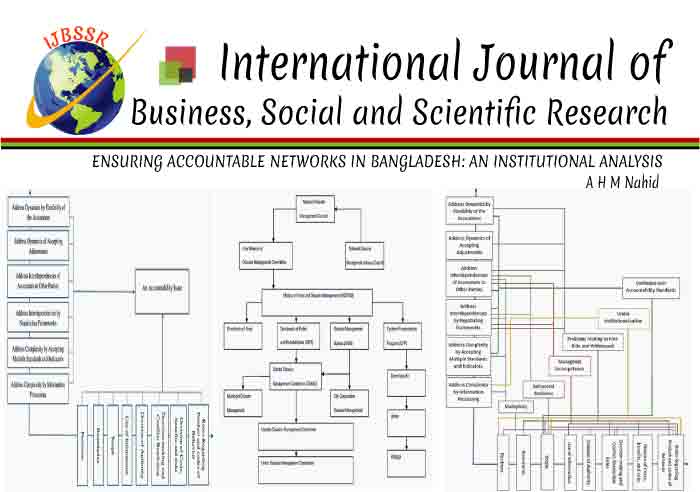ENSURING ACCOUNTABLE NETWORKS IN BANGLADESH: AN INSTITUTIONAL ANALYSIS

Over the past few
decades, the world has shifted from government to governance. As such, the
simple service delivery processes have turned into a complex web connecting
different organizations. This has caused the rise of a system what we know as
networks. Cooperation and collaboration among the organizations in the networks
have been considered the key to success. Intensifying cooperation and
collaboration have in turn caused the responsibilities to shrink. It has become
quite normal to assume that the responsibilities will be performed by others.
Similarly, it has also become very difficult to hold organization as well as
actors accountable for results that are produced in a collective manner and so
maintaining accountability has been a major challenge. The paper, using the
institutional perspective, has targeted to meet the challenge by identifying
factors that cause accountability problems and proposes an improved framework
so that the factors can be properly dealt with while ensuring accountability in
and of networks. The paper presents that it is the failure of bureaucracy as an
institution that has led to the accountability problems in and of networks. An
in-depth review of literature has been carried out to identify
accountability-related problem-posing factors in and of networks not only in
general but also in case of Bangladesh and finally, drawn from Klijn and
Koppenjan’s model (2014) of accountability management, an improved framework is
proposed that can deal with accountability issues properly and ensure the
effectiveness and efficiency of the networks.

